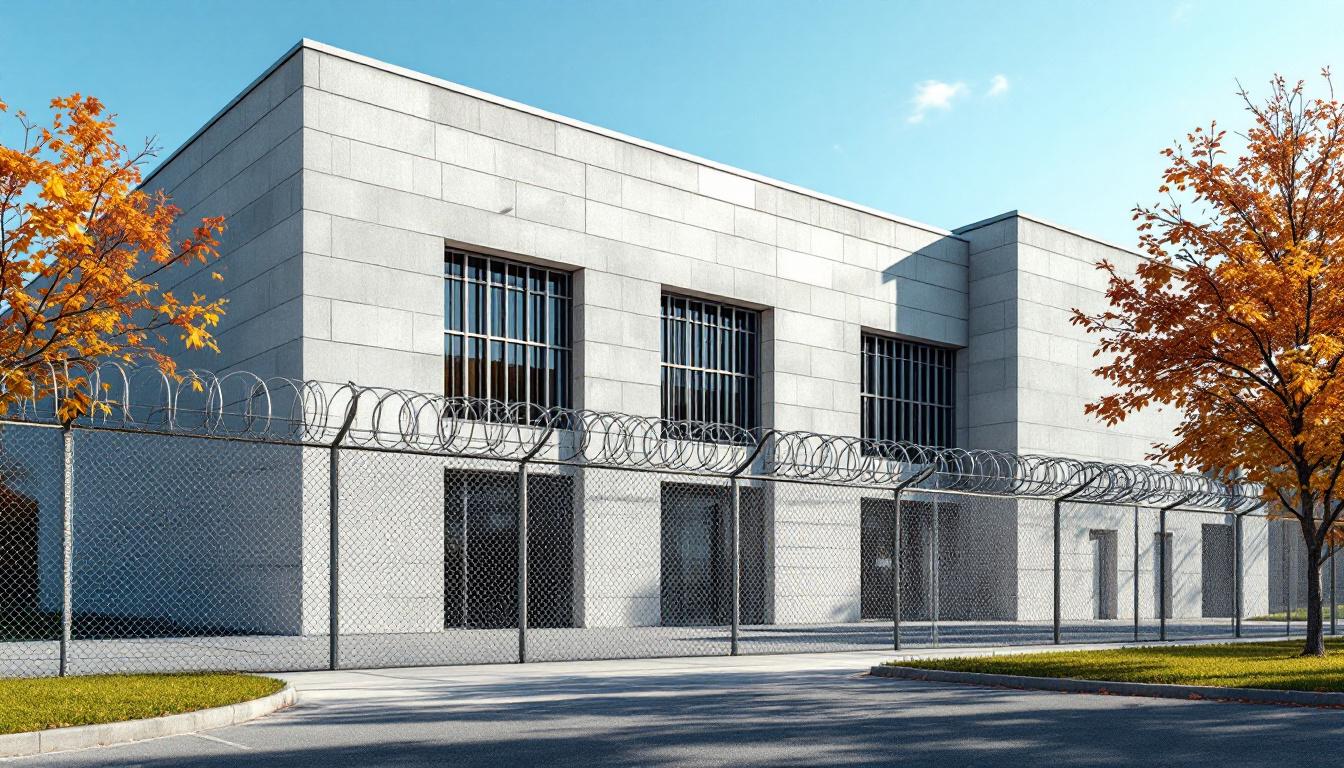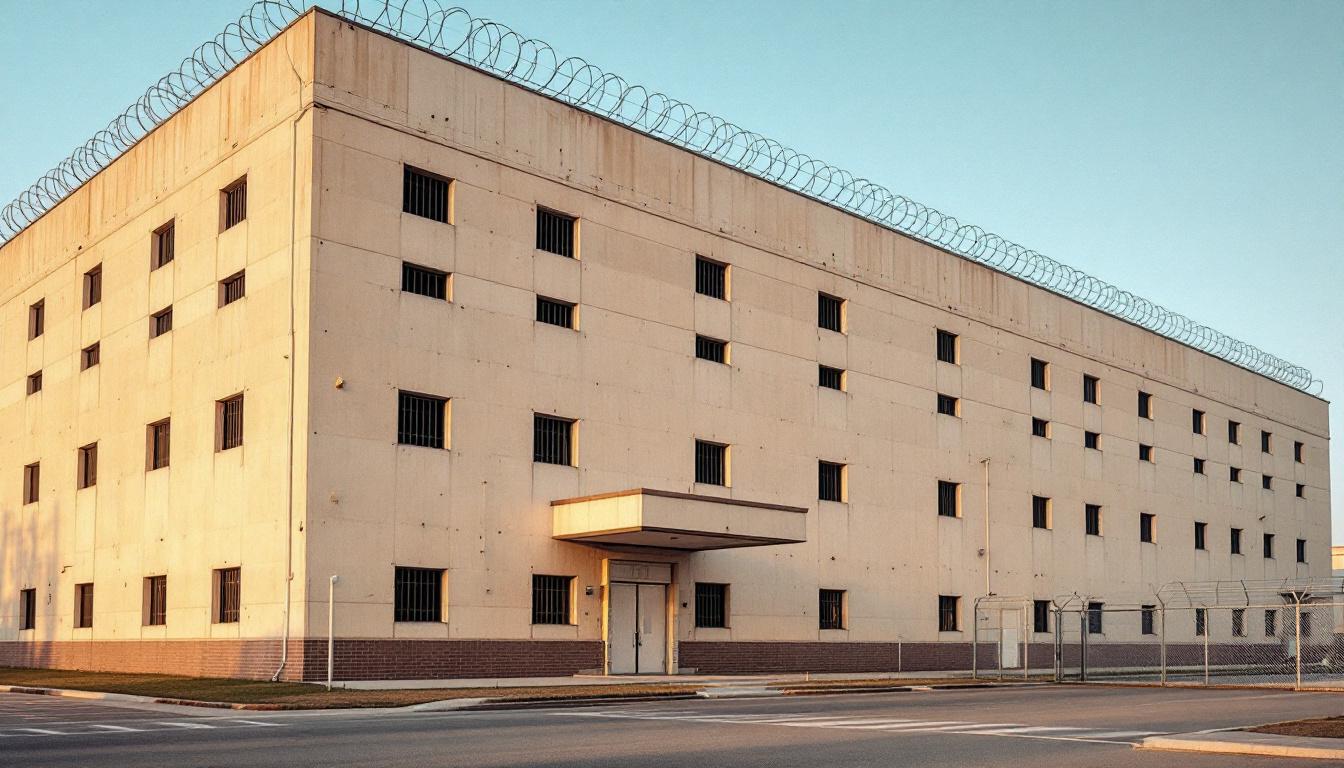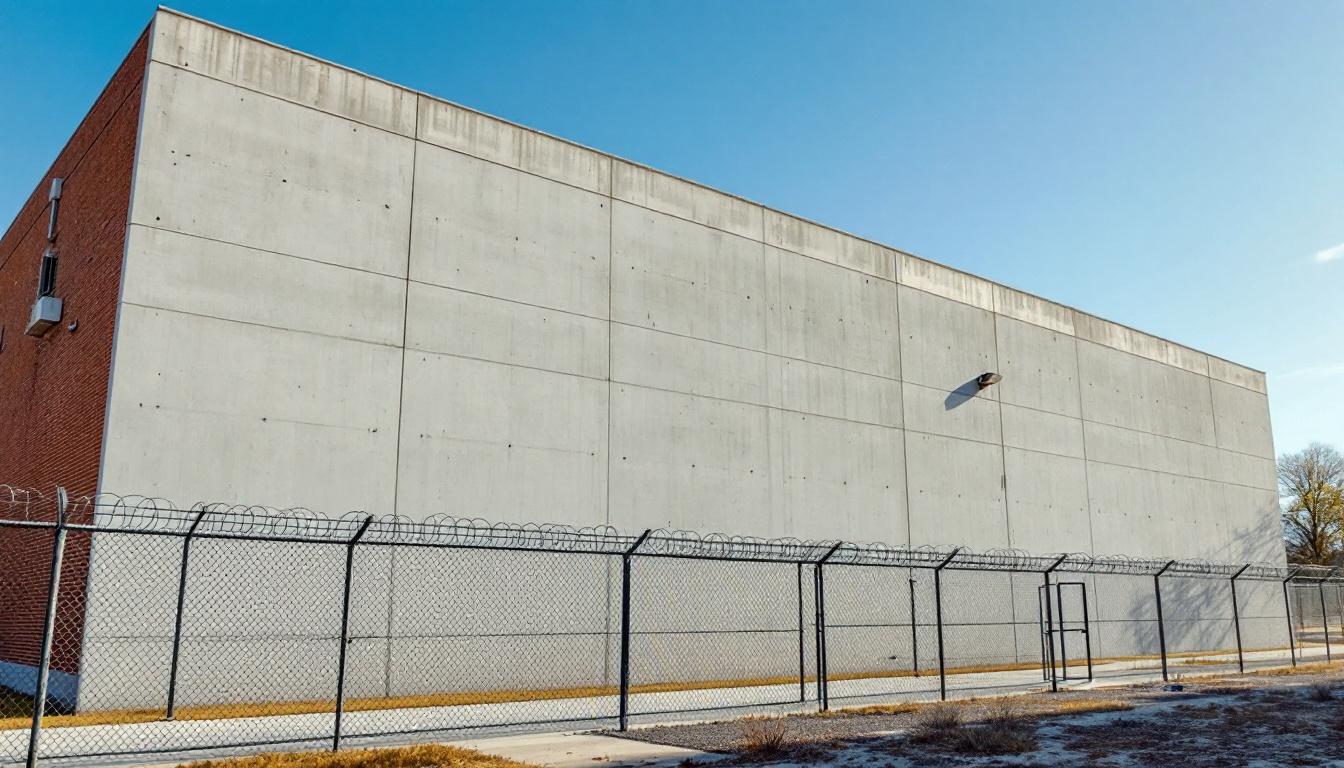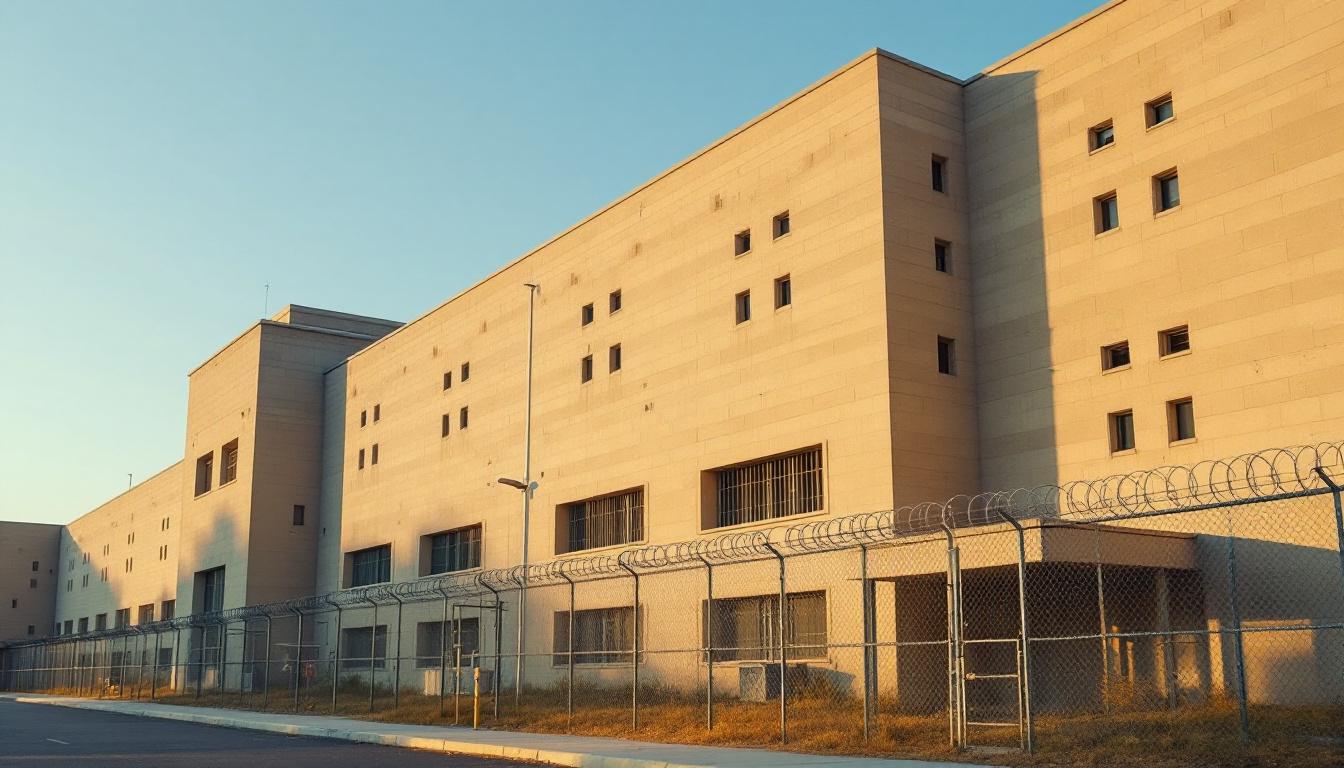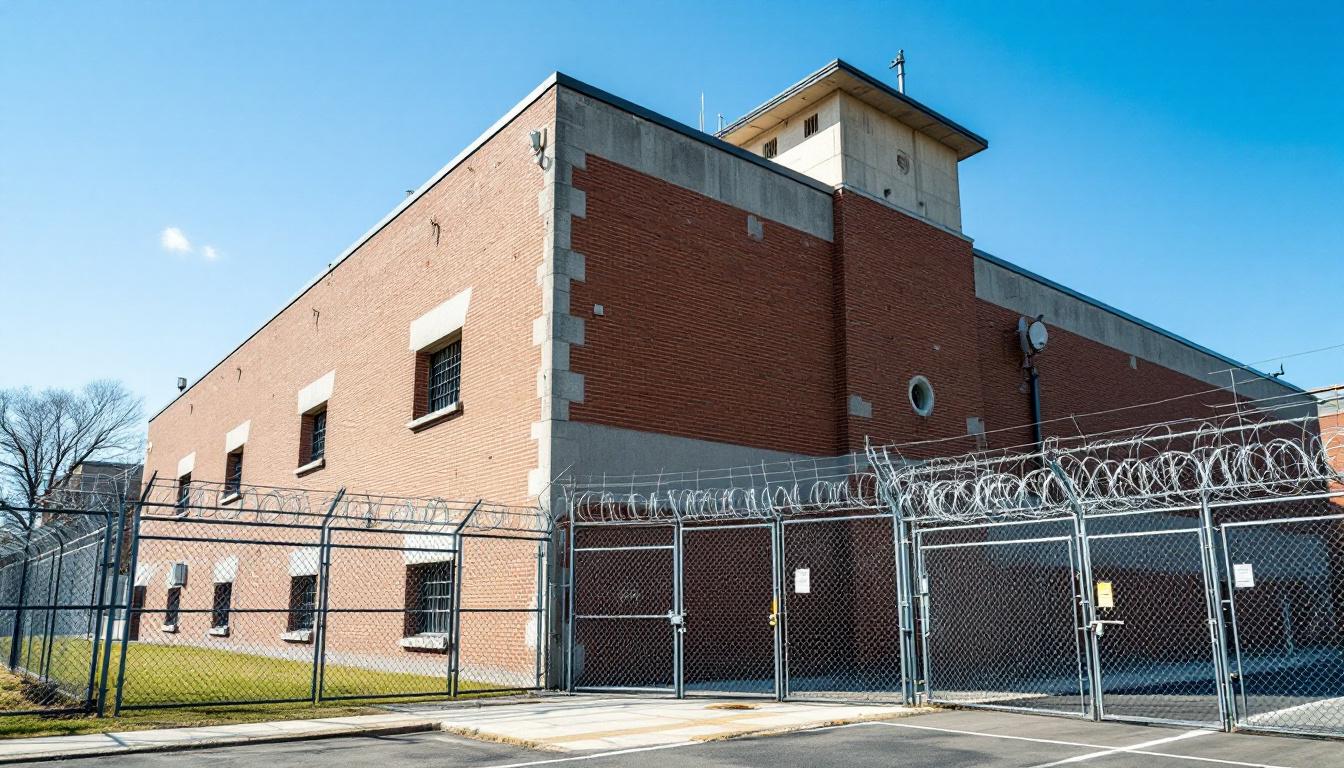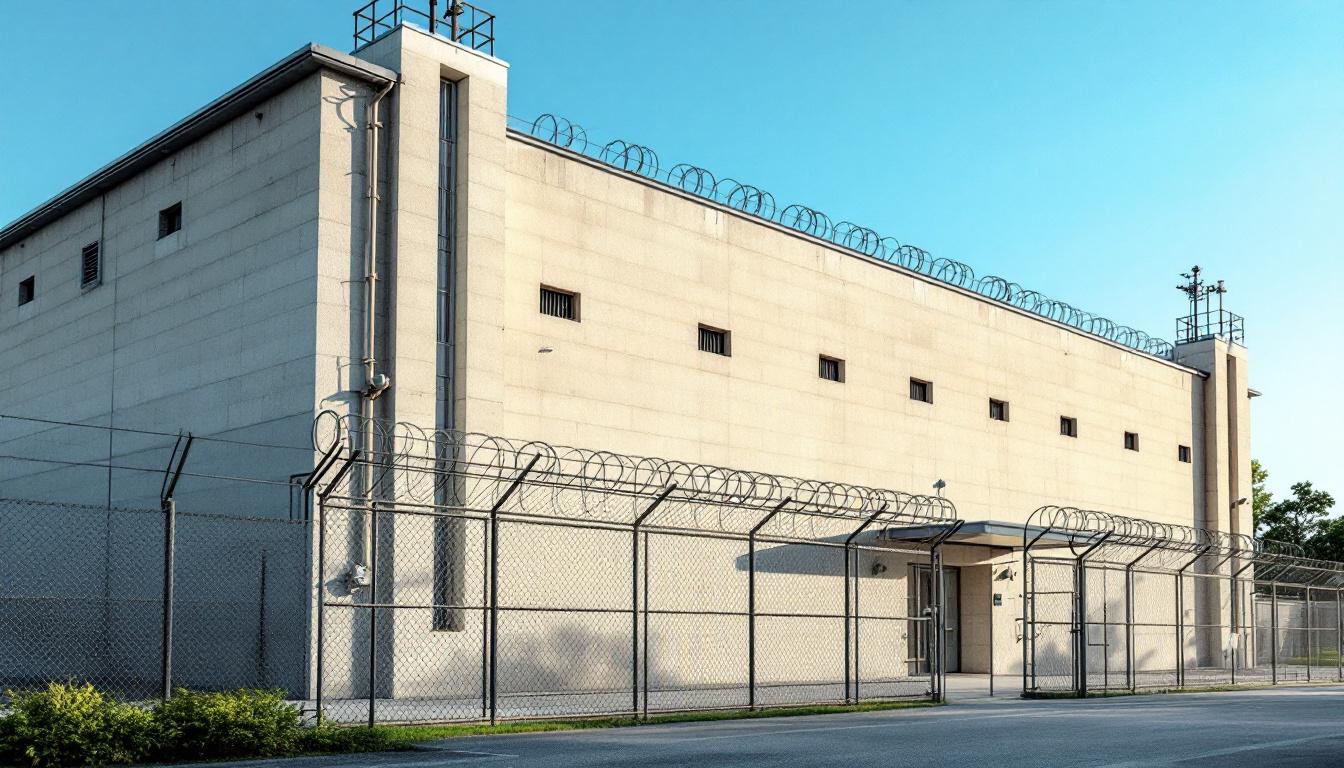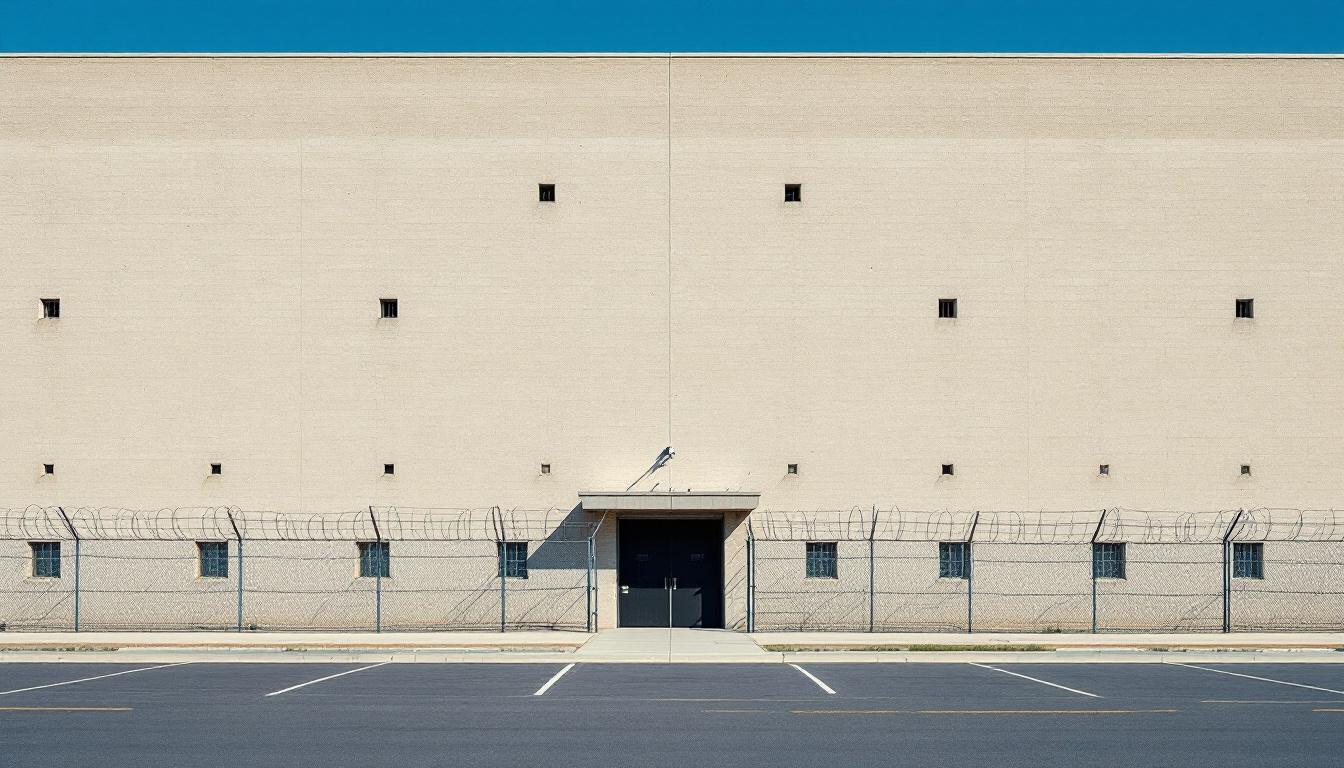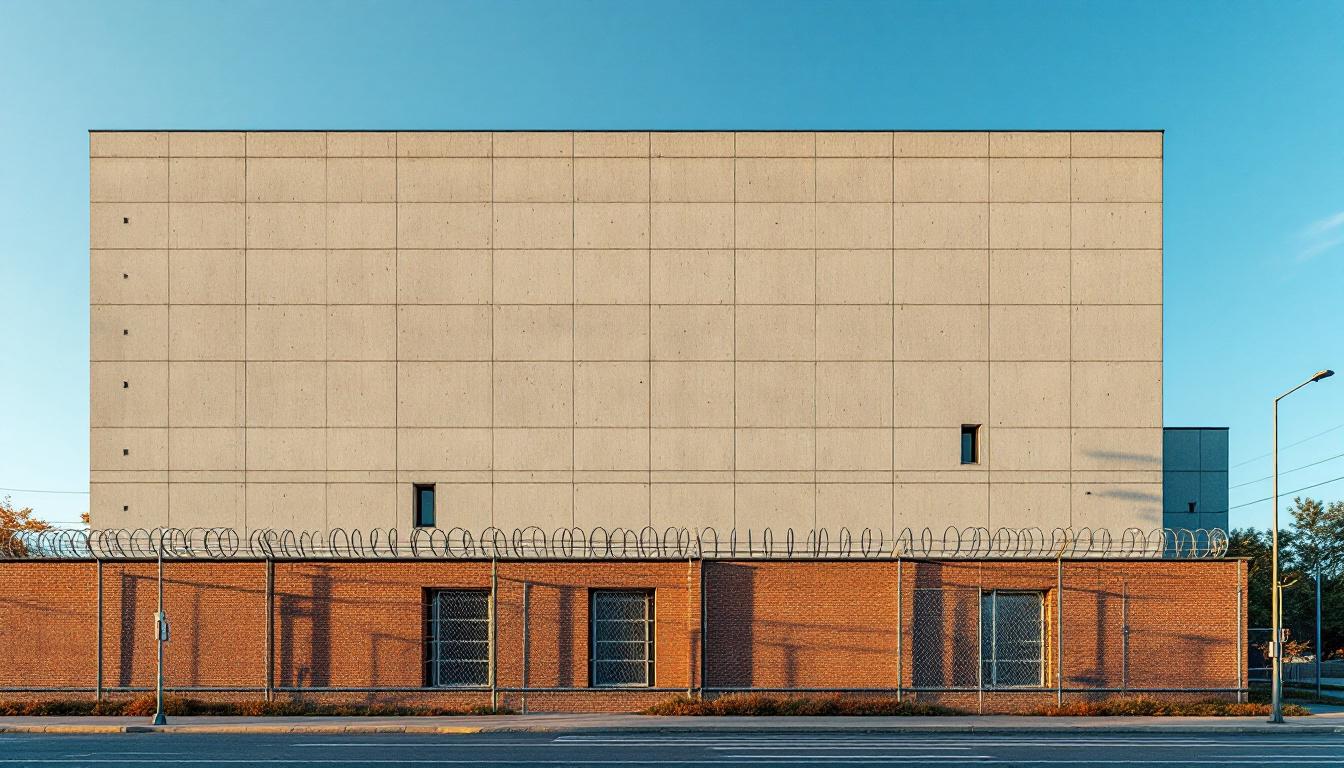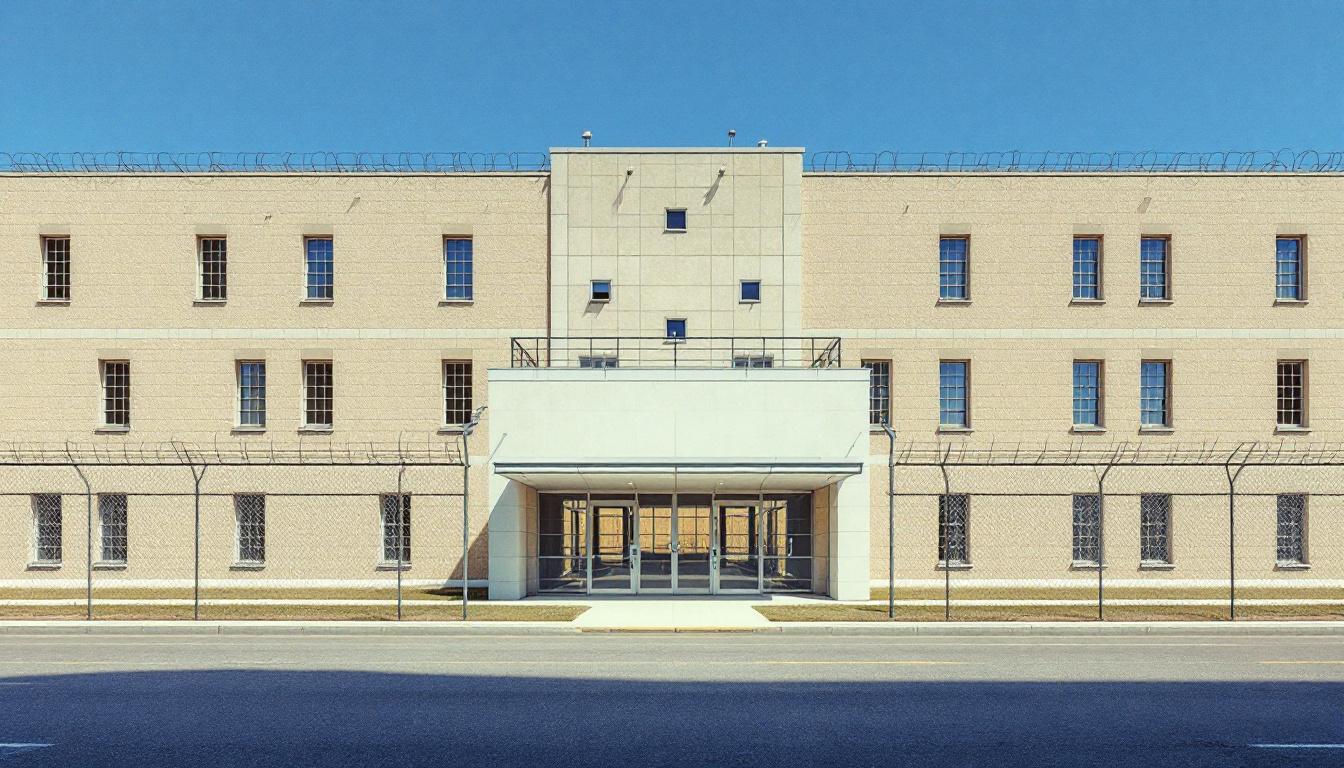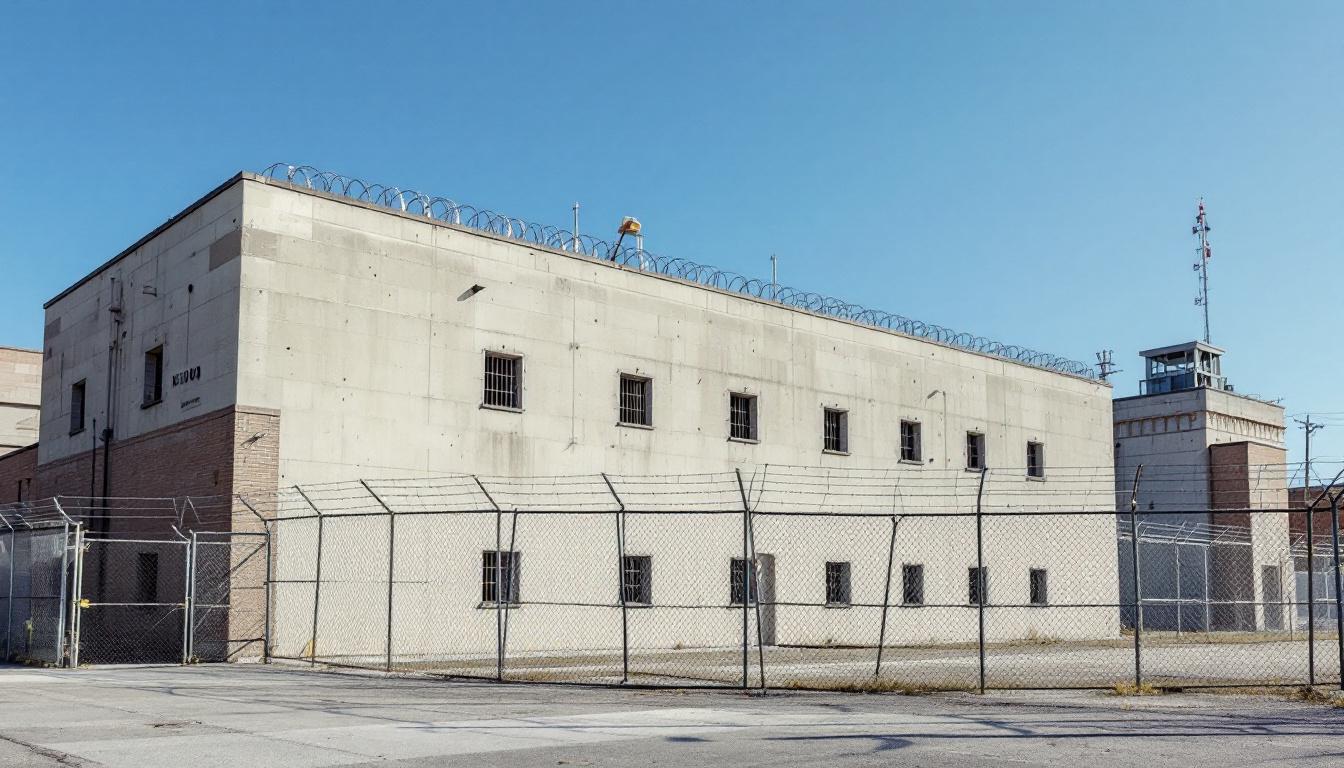
Quick Navigation
How to contact an inmate at Franklin Correctional Institution
This comprehensive guide will walk you through how to connect with an inmate at Franklin Correctional Institution. Follow the steps below to find an inmate and send letters and photos:
- Search for the inmate using our search tool below
- Create your account or log in to Penmate
- Write your message (up to 6,000 characters)
- Send instantly - inmates receive printed copies daily
Find an Inmate
Search for an inmate to start communicating today
Tip: You can search by first name, last name, or inmate ID number
To contact a person at Franklin Correctional Institution start by searching for the person on the official facility website. Perform a search by following these steps:
- Step 1: Enter their first name and last name into the search form and click "Search"
- Step 2: Locate their inmate record
- Step 3: Write down their Inmate ID and any housing information provided
Important! Be sure to enter the person's full name. Nicknames should not be used.
How to Send Messages to Inmates

You can use your phone or computer to send emails, letters, and photos to an inmate. Messages are sent electronically to inmate tablets or kiosks at the facility. If you would like to send a message, start by searching for an inmate at Franklin Correctional Institution.
Sending Photos and Postcards

A great way to send love and support to a loved one at Franklin Correctional Institution is to send photos and postcards. It only takes a few minutes to send photos from your phone and it makes a huge difference. You can also mail postcards with words of support and inspiration, or design your own postcard for special moments like birthdays and holidays.
Important! Be sure not to send any explicit photos or they may not be approved by the facility. You can also use a photo printing app like Penmate to make sure your photos are printed at the correct size (4x6 or 3x5) and are mailed according to the rules and regulations of Franklin Correctional Institution.
Frequently asked questions about Franklin Correctional Institution
-
How long does it take to deliver a message?
If you're sending an email message your letter is usually delivered within 24-48 hours. For messages sent via mail you should expect delivery within 3-7 days. All messages will need be approved by Franklin Correctional Institution.
-
How much does it cost to send a message to Franklin Correctional Institution?
You can send a message free using your phone or mail a message via USPS for the price of a $0.60 stamp and envelope. You can also purchase credits or e-stamps from services starting at $1.99.
-
What services can I use to contact an inmate at Franklin Correctional Institution?
Penmate
You can use Penmate to send letters and photos to an inmate from your phone. It's an easy way to stay in touch during your loved one's incarceration. Use the inmate locator to find an inmate's location and contact information, then you can send messages within a few minutes.
Securus messaging
Securus may be another option for communicating with an inmate at Franklin Correctional Institution. You can create a friends and family account and purchase credits to send messages. All messages will be reviewed and must be approved by the facility.
JPay
Some county jails and state prisons may support sending messages with JPay. You must register an account with the system, find your loved one, and purchase stamps to send messages. For some locations you can also attach photos.
Smart Jail Mail
You may also check if Smart Jail Mail is available at Franklin Correctional Institution. Smart Jail Mail is operated by Smart Communications and has contracted with some state and county jails. After purchasing credits, your messages and photos are sent to the facility, printed out, and then handed out to your loved one.
-
What is the mailing address of Franklin Correctional Institution?
Mailing address:
Franklin Correctional Institution
1760 Co Hwy 67
Carrabelle, FL 32322
Phone: (850) 697-1100Business hours:
- Monday: 8:00 AM – 5:00 PM
- Tuesday: 8:00 AM – 5:00 PM
- Wednesday: 8:00 AM – 5:00 PM
- Thursday: 8:00 AM – 5:00 PM
- Friday: 8:00 AM – 5:00 PM
- Saturday: Closed
- Sunday: Closed
-
What are the visiting hours at Franklin Correctional Institution?
Visiting hours at Franklin Correctional Institution vary by housing unit and security level. Generally, visits are scheduled on weekends and holidays, with some facilities offering weekday visits. Contact the facility directly at (850) 697-1100 or check their website for the current visiting schedule. Visits typically last 30-60 minutes and must be scheduled in advance.
-
What items are prohibited when sending mail to Franklin Correctional Institution?
Prohibited items typically include: cash, personal checks, stamps, stickers, glitter, glue, tape, staples, paperclips, polaroid photos, musical or blank greeting cards, hardcover books, magazines with staples, and any items containing metal or electronics. Only send letters on plain white paper with blue or black ink. Photos must be printed on regular photo paper (no Polaroids). Always check with Franklin Correctional Institution for their specific mail policies.
-
How do I send money to an inmate at Franklin Correctional Institution?
You can send money to an inmate at Franklin Correctional Institution through several methods: 1) Online using JPay, Access Corrections, or the facility's approved vendor, 2) Money orders mailed directly to the facility with the inmate's name and ID number, 3) Kiosks located in the facility lobby, or 4) Over the phone using a credit or debit card. Fees vary by method, typically ranging from $2.95 to $11.95 per transaction.
-
Can I schedule a video visit with an inmate at Franklin Correctional Institution?
Many facilities now offer video visitation as an alternative to in-person visits. At Franklin Correctional Institution, video visits may be available through services like Penmate, Securus Video Connect, GTL, or ICSolutions. Video visits typically cost $10-20 for 20-30 minutes and must be scheduled in advance. You'll need a computer or smartphone with a camera and reliable internet connection. Contact the facility for their specific video visitation policies and approved vendors.
-
What identification do I need to visit an inmate at Franklin Correctional Institution?
All visitors must present valid government-issued photo identification such as a driver's license, state ID, passport, or military ID. Minors must be accompanied by a parent or legal guardian who can provide the minor's birth certificate. Some facilities require visitors to be on the inmate's approved visitation list, which may require a background check. Contact Franklin Correctional Institution for specific ID requirements and visitor approval procedures.
-
How can I find out an inmate's release date?
To find an inmate's release date at Franklin Correctional Institution, you can: 1) Use the online inmate search tool if available, 2) Call the facility's records department, 3) Contact the inmate's case manager or counselor, or 4) Have the inmate provide this information during a call or visit. For privacy reasons, some facilities only release this information to immediate family members.
Facility Overview
Contact Information
Franklin Correctional Institution1760 Co Hwy 67
Carrabelle, FL 32322
Phone: (850) 697-1100
Official Website
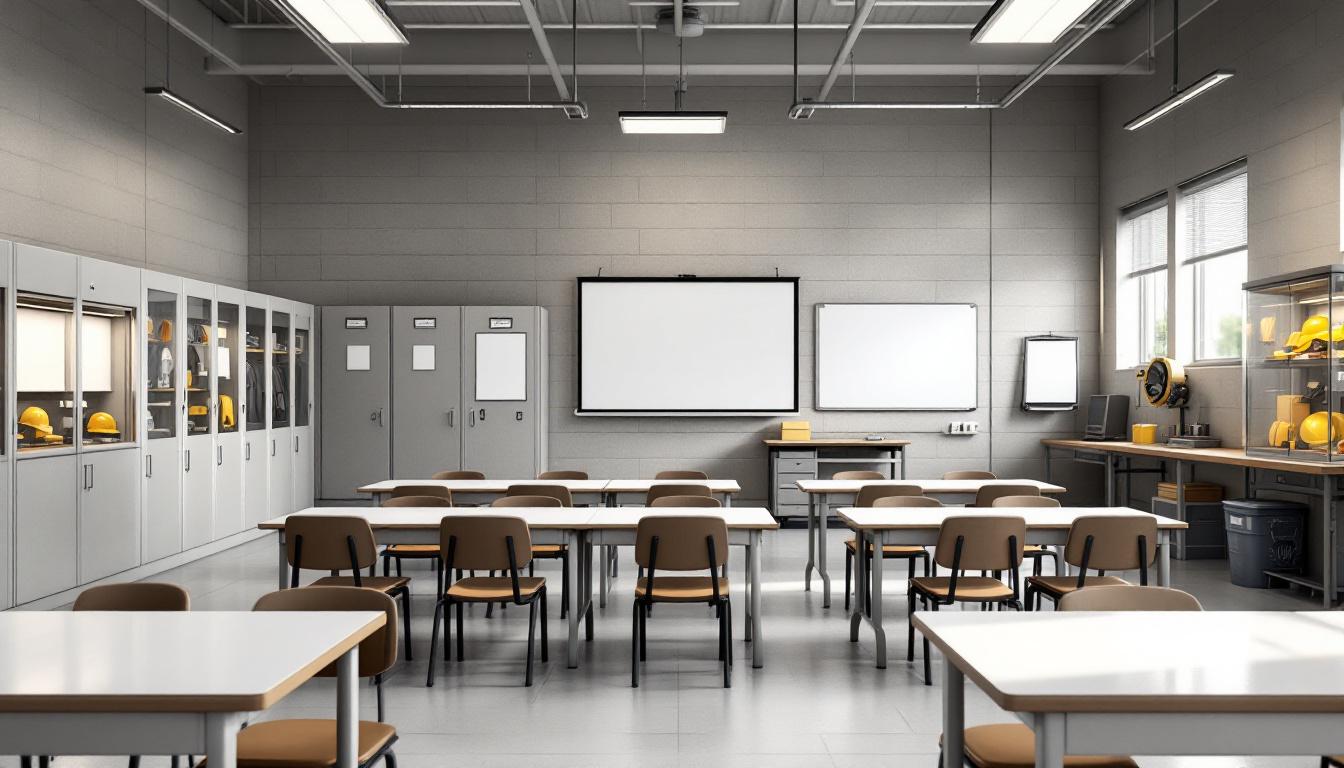
About Franklin Correctional Institution
Serving Tampa's broader commitment to public safety and community well-being, Franklin C.I. operates as an integral component of Florida's correctional infrastructure, where rehabilitation efforts intersect with security protocols to support both incarcerated individuals and the surrounding metropolitan area. This FL correctional facility typically maintains comprehensive programming designed to address the diverse needs of its population while contributing to the state's broader goals of reducing recidivism and supporting successful community reintegration.
Located within Tampa's correctional landscape, the facility generally provides inmates services that may include educational opportunities, vocational training programs, and behavioral intervention initiatives. These rehabilitation-focused offerings often encompass basic literacy instruction, substance abuse counseling, and life skills development, all designed to prepare individuals for eventual return to their communities. The correctional facility typically coordinates with various state agencies and community organizations to ensure continuity of care and support services that extend beyond the facility's walls.
Franklin C.I.'s operational framework generally emphasizes both security and rehabilitative programming, reflecting Florida's evolving approach to corrections that balances public safety concerns with evidence-based practices for reducing repeat offenses. The facility may offer mental health services, religious programming, and recreational activities as part of its comprehensive approach to inmate management and rehabilitation. Through these varied programs and services, the institution typically works to address the underlying factors that contribute to criminal behavior while maintaining the safety and security standards expected of a state correctional facility.
Programs & Services
Personal transformation through structured intervention forms the cornerstone of rehabilitative services at Franklin C.I., where comprehensive programming addresses the multifaceted needs of inmates seeking meaningful change. The facility's approach to rehabilitation emphasizes skill development, educational advancement, and therapeutic support, creating pathways for inmates to address underlying issues while building competencies essential for successful community reintegration. This holistic framework recognizes that sustainable behavioral change requires both practical skill acquisition and deeper personal development work.
Educational services typically encompass GED preparation programs designed to help inmates achieve fundamental academic credentials, while broader education programs may provide opportunities for continued learning across various subjects. Furthermore, vocational training in construction trades offers inmates the chance to develop marketable skills in areas such as carpentry, electrical work, and general construction techniques. These hands-on learning experiences often combine classroom instruction with practical application, allowing participants to build both technical competency and work-related soft skills that employers value in the construction industry.
The facility's support infrastructure may include work release programs that facilitate the gradual transition back into community employment, providing supervised opportunities for inmates to maintain employment while completing their sentences. Additionally, chaplaincy programs often serve as vital sources of spiritual guidance and emotional support, helping inmates explore questions of meaning and purpose during their incarceration. Therapeutic interventions, particularly substance abuse treatment services, typically address the addiction issues that frequently contribute to criminal behavior, offering inmates evidence-based approaches to recovery and relapse prevention strategies essential for long-term success.
Daily Life & Visitation
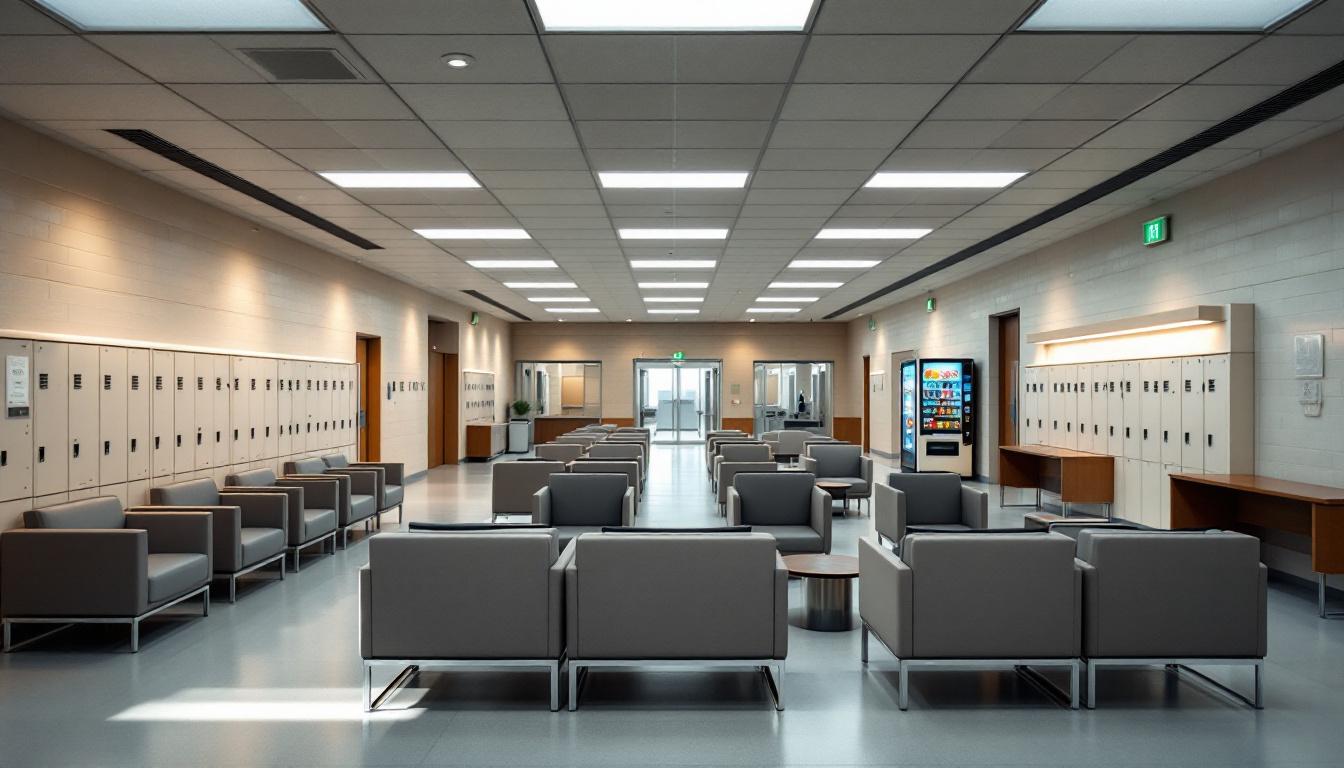
Behind the secure perimeter of Franklin Correctional Institution, inmates navigate a highly structured environment where concrete housing units and controlled movement define the physical boundaries of daily existence. The facility currently operates on a regimented schedule that begins before dawn and continues to evening lockdown, with inmates adapting to predictable routines that provide stability within the institutional setting. Generally, the day includes designated times for meals, work assignments, educational programming, and limited recreational activities, all carefully coordinated to maintain security while offering opportunities for personal development and rehabilitation.
Living accommodations typically consist of shared cells or dormitory-style housing units, where inmates must adapt to limited personal space and the constant presence of others. Furthermore, the dining experience involves scheduled meal times in common areas, where inmates receive standardized portions and must follow specific protocols for movement and behavior. Personal property remains restricted to essential items and approved commissary purchases, requiring inmates to adjust their expectations about material possessions and privacy. Although the environment may seem austere, many inmates develop coping strategies and form supportive relationships that help them manage the challenges of incarceration.
The facility generally provides various structured programming opportunities, including educational classes, vocational training, and work assignments that may involve kitchen duties, maintenance tasks, or facility operations. Recreation and exercise opportunities typically include access to outdoor yards, fitness equipment, and organized activities during designated periods. Furthermore, family connections remain vital through scheduled visitation sessions and telephone privileges, allowing inmates to maintain important relationships despite the institutional barriers. Although these programs and privileges provide structure and purpose, inmates must often adapt to waiting lists, changing schedules, and the reality that institutional needs frequently take precedence over individual preferences.
Ready to Connect?
Start communicating with your loved one today
Search for an Inmate
